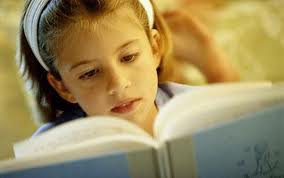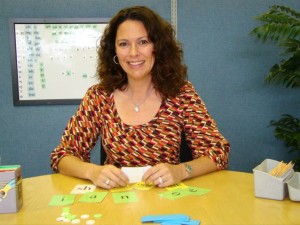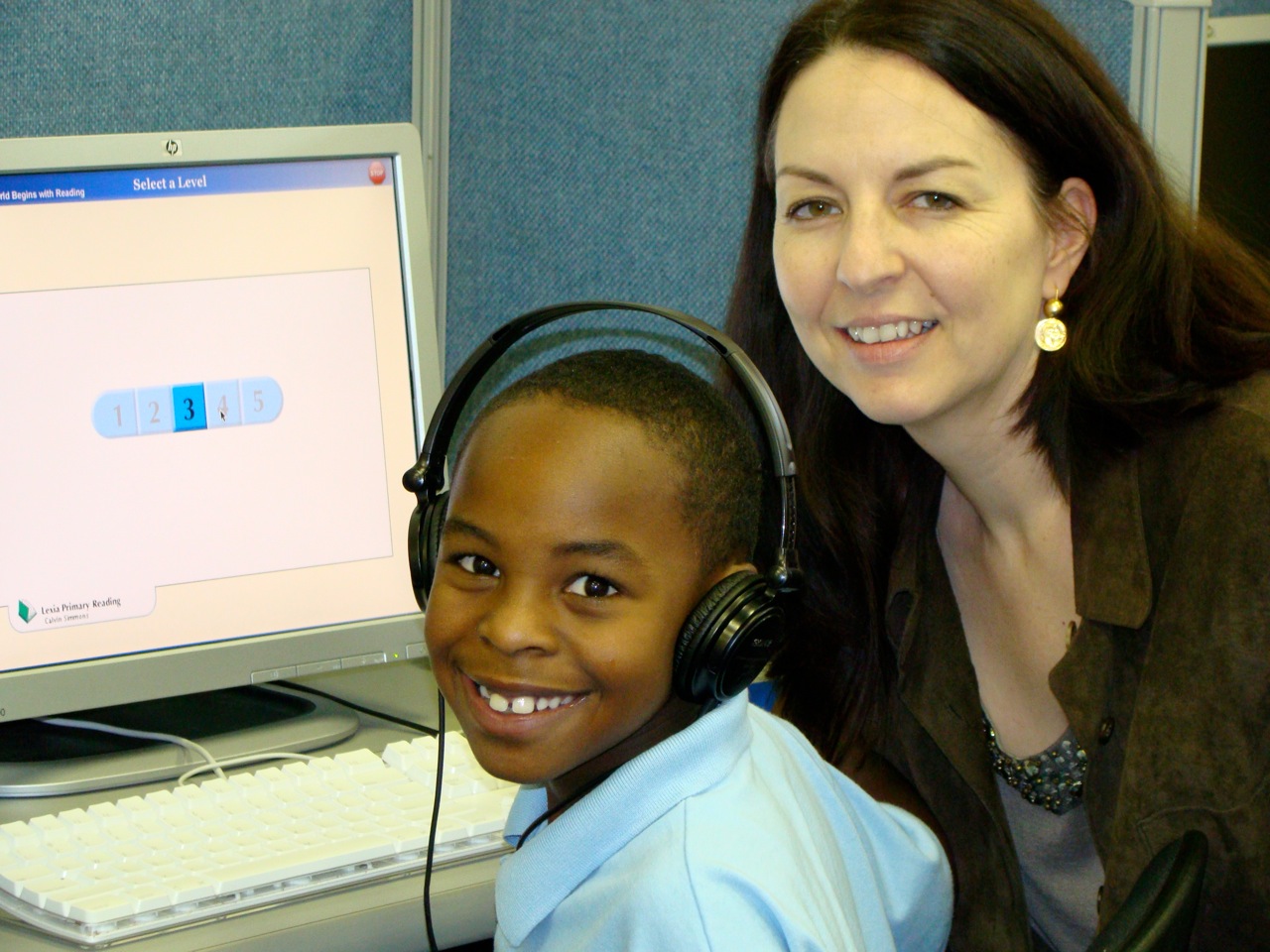
by PRIDE Reading Program Admin | Mar 18, 2014 | A PRIDE Post, Reading Disability
Intervene early! Reading disabilities are considered to be the most common learning disability and are often not diagnosed or treated until it is too late for easy recovery. A child with a reading disability that is not identified until the third grade or later is already years behind his or her classmates. This is a gap that must be closed if the child is ever to catch up with his or her peers. The best intervention is in kindergarten or remediation beginning in the first grade.
Teach phonics. Through phonics, children learn to associate sounds and form connections to word recognition and decoding skills needed for reading. Research clearly proves that phoneme awareness performance is a major predictor of long- term reading and spelling success. In fact, according to the International Reading Association, phonemic awareness skills in kindergarten and first grade appear to be the most important predictor of successful reading acquisition.
Teach spelling. Spelling and reading rely on the same mental representations of a word. The correlation between spelling and reading comprehension is high because both depend on proficiency with language. The more profoundly and methodically a student knows a word, the more likely he or she is to recognize it, read it, spell it, write it, and use it appropriately in speech and writing.
Teach writing. Start teaching writing in preschool and kindergarten. Learning to write engages the brain in repetition and memory on how letters and sounds reflect meaning, addresses numerous reading and cognitive skills, and helps activate both reading and spelling areas of the brain.
Teach handwriting. Technology is a fun writing tool for kids but it doesn’t engage the early reading brain in the same helpful way as learning to move the pencil across the page to use letters as images of sound. Brain scan studies show that early lessons in letter formation help activate and coordinate reading connections in the brain.
Repetition, repetition, repetition. The brain of a child feeds on repetition to make doing things such as reading automatic and fluent. Use repetition in the early grades for reading aloud, for rhyming, for matching letters with sounds, for writing alphabet letters, for spelling, for sounding out words, for automatic reading of sight words, for making meaning in print. Children thrive on it. So make it fun!
Don’t ever give up on your child. Keep the expectations of your child and their reading future high. We owe it to our children to show our support, give them every resource possible to help them and give them the skills necessary for learning and communicating throughout their education and their lives.
________________________________________________________________________________________________________

Karina Richland, M.A. is the Founder and Director of PRIDE Learning Centers, located in Los Angeles and Orange County. Ms. Richland is a certified reading and learning disability specialist. Ms. Richland speaks frequently to parents, teachers, and professionals on learning differences, and writes for several journals and publications. You can visit the PRIDE Learning Center website at: www.pridelearningcenter.com

by PRIDE Reading Program Admin | Mar 5, 2012 | News & Events
Our summer program is our most popular program of the year. Pride’s teachers are all credentialed and certified in Orton-Gillingham methodology. Pride programs are always taught one-on-one.
Pride’s fun-filled yet intensive one-on-one reading program has become so popular that we even draw families from all over the globe. Recent students have come to Pride from China, Japan, Saudi Arabia, France, England, Canada and even the San Fernando Valley.
Sample Daily Schedule:
9:00 – 10:00: Orton-Gillingham Reading Instruction
10:00 – 10:30: Computer Based Reading Instruction
10:30 – 11:00: Snack, Fun and Movement
11:00 – 11:30: Written Expression
11:30 – 12:00: Orton-Gillingham Reading Instruction
Times:
9:00am – 12:00pm or 1:00pm – 4:00pm Monday – Friday
Our Summer 2012 program runs weekly from June 25th – August 31st. You can sign up for any weeks you like during those dates.
Tuition is $980 weekly
Take advantage of our Discounts!
- 10% off early registration by April 31, 2012
- 10% off for returning families
- 20% off for bringing a friend
- 15% off if you register for 4 or more weeks
Space is limited and our summer sessions fill up quickly.
Call us today at 866-774-3342 to request a registration form. Or email us at info@pridelearningcenter.com
by PRIDE Reading Program Admin | Dec 16, 2010 | A PRIDE Post, ADHD, Autism
Learning Disability and Gifted?
Gifted children with learning disabilities are known as “twice exceptional.” In the educational system a child labeled both “gifted” and “learning disabled” is rare. Most children are labeled as either remedial and special needs or honors and college prep. Rarely are these children viewed as a combination of the two. Most educators do not expect a gifted child to have dyslexia or even realize that a child with ADHD (attention deficit disorder) might also be brilliant in creative writing or calculus. Identifying a child as twice exceptional is very difficult since these children may be compensating for and masking their learning disability, and in turn their disabilities may disguise their giftedness.
I recently read a book titled, Light Up Your Child’s Mind. Dr Renzulli and Dr. Reis write about the crucial role parents and educators can play in their children’s development. They discuss that intelligence; creativity and motivation to achieve can be fostered in bright children, even unmotivated ones. The book provides tips on how to identify and encourage giftedness in children, while still helping the child succeed within the educational system. An entire section is devoted to resources and suggestions on where to go to help your child develop constructive and interesting projects within his or her area of giftedness and interests. These include:
- Mentors-in-print
- Web site enrichment activities
- Contests and competitions
Light Up Your Child’s Mind presents a practical guide for teachers and parents to help their children “light up” a love of learning forever. This is an easy read and is well organized into three different sections:
- What is this thing called giftedness
- Practical paths to developing your child’s gifts and talents
- Special Considerations
Originally, I borrowed the book from the library, but then ended up buying it since I found this chapter on resources to be extremely valuable. I now have the book on my desk so that whenever my students need a stimulating activity to work on I use the book as a reference guide.
Raising a gifted child and developing those gifts requires a parent or teacher that is open minded, flexible and ready to invest the time and effort needed. Gifted children all have unique strengths and interests that should be recognized and developed.
___________________________________________________________________________________
Karina Richland, M.A., E.T. is the Managing Director of Pride Learning Centers, located in Los Angeles and Orange County. A former teacher for Los Angeles Unified School District, Ms. Richland is a reading and learning disability specialist. You can reach her by email at karina@pridelearningcenter.com or visit the Pride Learning Center website at: www.pridelearningcenter.com
by PRIDE Reading Program Admin | Aug 17, 2010 | A PRIDE Post, ADHD
By Karina Richland, M.A., E.T.
I just finished the book, Inside the Teenage Brain: Parenting a Work in Progress, by Sheryl Feinstein. It is an easy read and I was able to finish the entire book in a few days. It is a fabulous parenting guide and will really help parents and teachers understand the complexity of the teenage brain and give them some valuable insight into their teenager’s mind.
I was particularly interested in the chapters on Attention Deficit Hyperactivity Disorder as well as Learning Disabilities and how we as parents and teachers can understand the abnormalities in many parts of the brain in our teenagers. I did learn, that according to the research, there is clear evidence that there is a biological difference between the brains of ADHD individuals and others.
In Chapter 1, the book covers basic information on the teenage brain, how it differs from the adult brain and why adults find the teenager’s actions so challenging and confusing. I especially enjoyed learning about the overproduction of dendrites and synaptic connections and how valuable education and learning is during these teenage years. Adolescents are acquiring knowledge at an unprecedented rate during the teenage years. The more the student is engaged in an activity, the more dendrites grow and build synaptic connections. The teenager is given a second chance in life to really build up that brain! The more time that is dedicated to reading, writing, math, music, and sports – the better the brain is formed for the future. Not only is the brain producing dendrites like crazy, but it is also going through a pruning process – use it or lose it!
Chapters 2 – 11 go into detail discussing social, emotional, physical, educational and technological issues that both parents and teenagers face daily. Each chapter provides strategies for parents or teachers that work and also don’t work.
The entire book is written in a very parent-friendly manner. The sections on neurology and neuroscience are easily understood and absolutely not intimidating. I highly recommend this book to all parents and teachers. The more parents read, research and learn about the inner workings of their teenager’s brain, the better parents and teachers we all will be.
___________________________________________________________________________________________
Karina Richland, M.A., E.T. is the Managing Director of Pride Learning Centers, located in Los Angeles and Orange County. A former teacher for Los Angeles Unified School District, Ms. Richland is a Reading and Learning Disability Specialist. Ms. Richland speaks frequently to parents, teachers, and professionals on learning differences, and writes for several journals and publications. You can reach her by email at: info@pridelearningcenter.com or visit the Pride Learning Center website at:
www.pridelearningcenter.com



